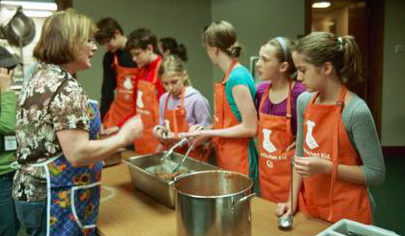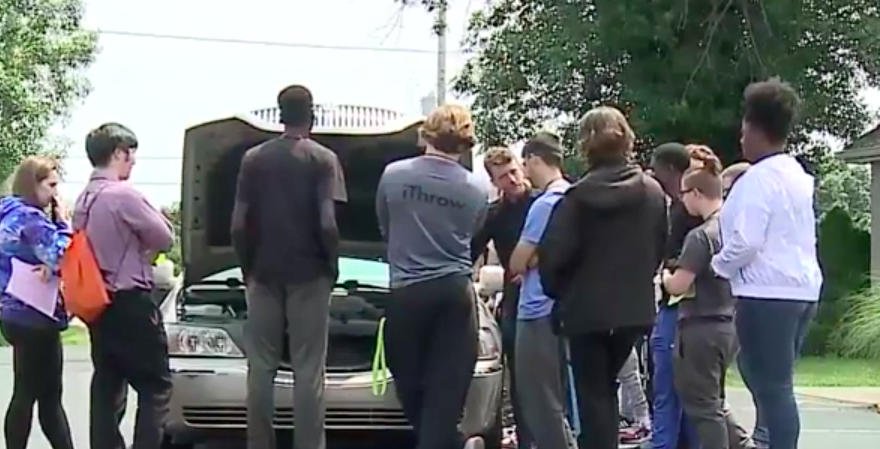Are students really prepared for life after graduation?
January 21, 2020
The path after high school differs from one student to another. Some students will move on to college; others may enter a trade, and a lucky few may drop out and become youtube famous. While these paths all differ, there is one constant for many students: they feel as if high school did not entirely prepare them for outside life. While it is unrealistic for high schools to teach students everything they will ever need to know in life, the question must be asked: are high schools adequately preparing their students for life post-graduation?
To gain further insight we questioned many students of the Ipswich High School to explore their thoughts on how high school has prepared them for their adult life. When asked if they believe Ipswich High School has prepared them for adult life, senior Megan Callahan declared, “Not totally. It has taught me perseverance skills but not information that can pertain to adult life. It teaches you how to how to learn, like the way we learn that can be used later.”
Senior James Kim had a similar answer, describing how although IHS has not “prepared me essentially for adult life when it comes to classes” but the “experience we gained from Ipswich are one of a kind and taught us how to deal with life uniquely in a way where we do things that will stick with us throughout our lives.”
When questioned about what they fear most about their future and adult life, the students’ answers had a common theme: being independent. “I’m worried about my future when it comes to what I am going to do in life… College and further on is concerning in a way where we’re stepping out of our comfort zones… I don’t know where I’ll be in a couple of years.” said James Kim. Ipswich senior Trevor Macrae stated that he fears the concept of “having no safety net.” The idea of leaving high school for college continued by entering the unhindered and largely unregulated real world can be frightening, especially when contrasted with the relatively safe and repetitive nature of high school. Many high school students fear the concept of the real world where one’s mistakes can have real consequences. It can be hard to imagine what we will be doing in our next steps of life, and while high school may not teach us information tailored to our specific desires and future careers, it does teach us the proper mindset to take on new challenges.
Largely unsatisfied with how their high school experience translates to the real world, many students are in favor of a change. Students are not calling for a total reform of the education system, rather allow for more opportunity for students to explore the different aspects of adult life before experiencing it first hand. “Although school is more about the grade rather than pure learning, understanding, and knowledge, core classes are important. For example, history teaches us how society has been built and changed through time, and history is bound to repeat itself if not taken to heart by the forthcoming generations,” said Trevor Macrae. “In addition, these core classes are also taught in college, so disregarding them in high school would set students up for failure in college,” added Megan Callahan.
Surrounded by courses focusing on topics and issues many students will never apply to their future career, there is one teacher who administers classes that directly teach young students how to manage their money in the future, Bruce (Mr.) Mabbot. Teaching Business and Entrepreneurship, personal finance, and math, Mr. Mabbot prides himself in his work in preparing students for their future.
“Classes like personal finance are valuable because they make it ‘real’ to the students. A lot of students don’t see things as real, and if we can make it real to them they tend to learn better.” says Mr. Mabbot. Mr. Mabbot believes that students should be interested in their work and supports the movement of having more classes that pertain to the real world. Despite this, he does not believe the core classes should be disregarded as the students “will be using those skills they gain from [those classes].”
When asked about his personal struggles and challenges when leaving high school, Mr. Mabbot was most concerned about maturity, which is something that can not be taught in a conventional classroom setting. With the advent of his real-world application classes, Mr. Mabbot does believe Ipswich is doing a better job than most high schools in preparing its students for the real world, but believes that further action can be taken to improve the state in which Ipswich students enter the working world.

While Ipswich’s Business and Entrepreneurship and Personal Finance classes help students with many of the issues that school generally doesn’t help with, there is still more that can be done. While they may feel more prepared, many students are still unsure about how they will fare in the real world. This feeling is shared between high schoolers across the country. However, in some areas, action is being taken to help unprepared students. At Fern Creek High School, in Louisville, Kentucky, seniors learn how to be “grownups” in a three-day course which aims to “prepare students for life after high school.”(WLKY)
The school focused on issues that many students complain should be included in a high school curriculum. “Experts showed students how to check their oil, hang pictures on a wall, wash and dry clothes.”(WLKY) Many of these are skills that schools have claimed should be taught at home, but not everybody has the same access or opportunity. The school is teaching students, “all about money, home and health, and about being a professional.”
The three day Fern Creek High School course is revolutionary in the way school helps their students prepare for life after graduation, even making national news and becoming famous on social media. It serves as a role model for other schools, and we hope that schools in our area will eventually alter their curriculum to include beneficial classes like this.
There are many ways that Ipswich High could incorporate “adulting” into their school curriculum. The school could treat the issue like Fern Creek High School, and implement a program for a week or so into the Senior’s schedule. This time could be used to help Seniors learn proper manners, demeanor, and dress, proper behavior in business and public, grooming and appearance, creating and following schedules, negotiating in the business world, writing emails and many more skills that may not be taught in the home environment.
The school could also implement a class similar to the one that UC Berkeley recently instituted. This class could be a semester-long and cover much of the same content matter, but more in-depth, with a wider range of topics. Ipswich could also benefit from a home ec. class, with every student interviewed claiming they could benefit from a class like that. Regardless of how the program is implemented, it is clear that students want a program that could help them learn how to be adults.
High school is a trying experience for all. Whether you’re figuring out who you truly are, worrying out how to balance a checkbook, or finding your purpose in life, high school is the proving ground for America’s next generation. More and more students are feeling largely unprepared for adult life. With some schools are making changes, the education system could revolutionize the way that school systems help prepare students for outside life.

Sources:
https://www.latimes.com/opinion/story/2019-12-15/adulting-classes-helicopter-parenting

